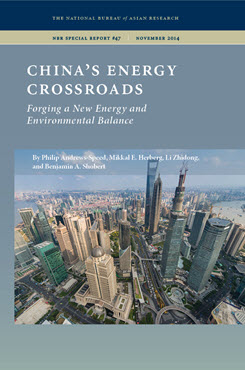Peak Coal in China
Rethinking the Unimaginable
This essay explores the prospects for peak coal demand in China and details implications for public policy.
EXECUTIVE SUMMARY
This essay explores the prospects for peak coal demand in China and details implications for public policy.
MAIN ARGUMENT
Coal is the dominant form of energy used in China, but its role in the country’s overall energy mix has been progressively reduced since 2011. A number of factors have contributed to this slowing growth in demand—including major shifts in China’s economy, rising levels of energy efficiency, and the continuing substitution of coal with other fuels—and policy and market evidence suggests that these trends will continue to check new growth. Yet how and to what extent China will be able to reshape its use of coal has been the subject of great debate. A number of prominent studies conducted by different Chinese and international organizations show that China’s coal demand will peak in the near future, but these studies diverge significantly in their assessments of when and at what level. A comprehensive reassessment of the market, technological, and policy factors that shape our understanding of when peak demand will occur suggests that China’s coal use is very likely to peak before 2020, yet achieving this goal will require ongoing leadership from industry and policy.
POLICY IMPLICATIONS
- Without a clear estimate of when China will reach peak coal demand, it is difficult to make an objective evaluation of China’s strategies and actions toward addressing energy-related issues such as reducing air pollution and lowering carbon dioxide (CO2) emissions. A clearer understanding is critical for strengthening public policy and requires revisiting common assumptions.
- In order to make the peaking of coal and reduction of CO2 emissions feasible, more comprehensive strategies should be adopted by stakeholders in China. These include the promotion of greater energy efficiency, the deployment of alternative fuels, and the imposition of a carbon tax.
- A joint effort by China and the United States is imperative for addressing global climate change. The most important objective in the near future is that each country should move forward with ambitious long-term targets for reducing CO2 emissions and secure approval for these plans.
Li Zhidong is a Professor in the Department of Management and Information System Science at Nagaoka University of Technology in Japan.


